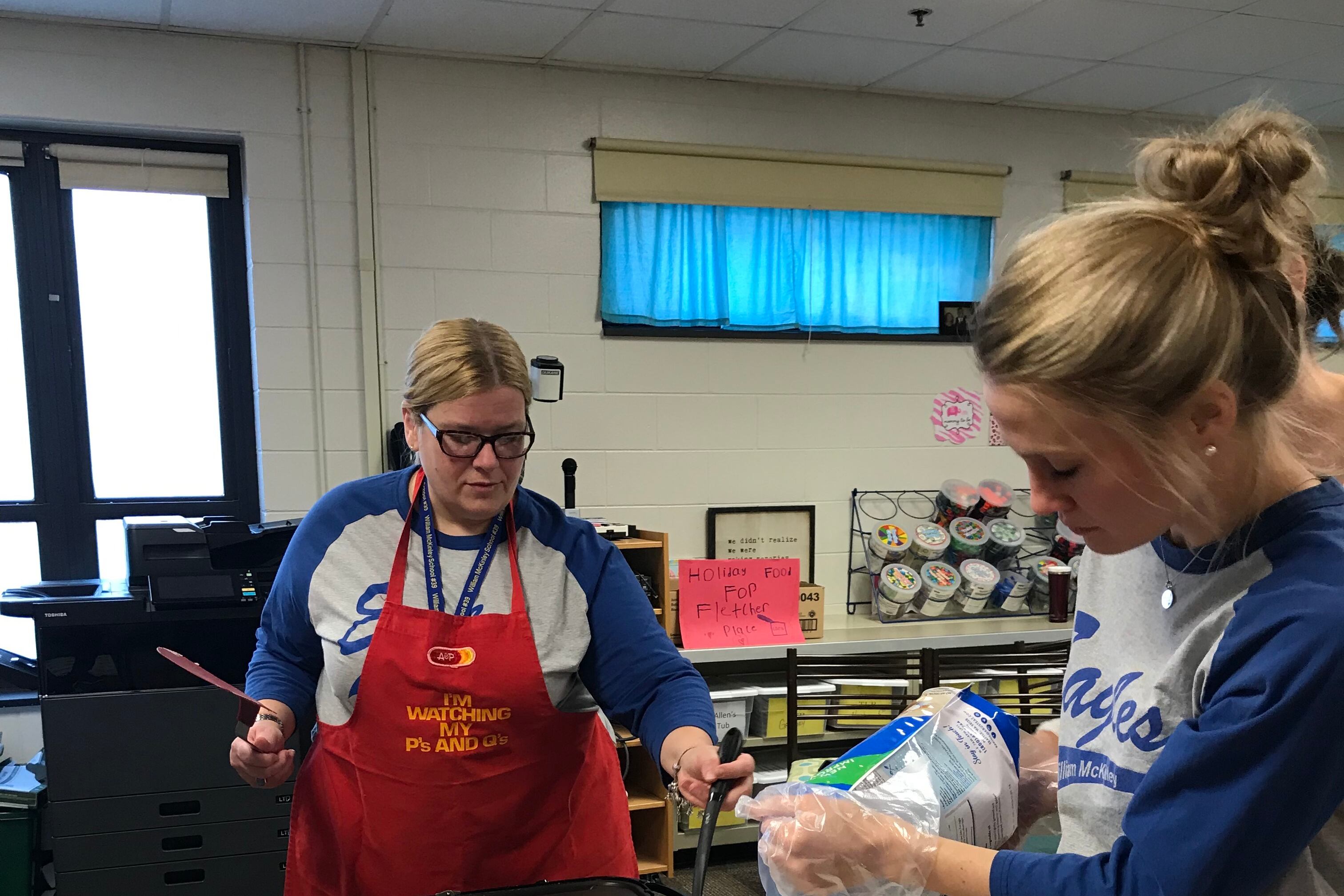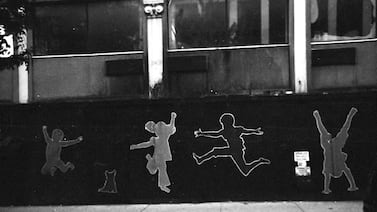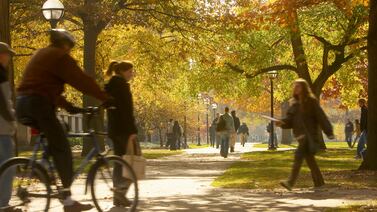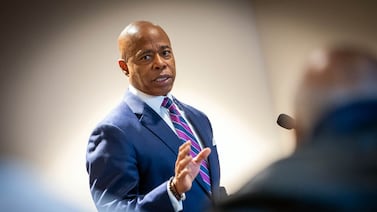One day this spring, working from home during remote learning, Indianapolis Principal Deana Perry got a text message telling her to go outside.
When she stepped outside her house, she was greeted by a honking car parade of teachers and staff from her school and a slew of yard decorations for Principal Appreciation Day.
It was so fun that Perry decided, “I’m going to share this.”
She collected all the yard decorations and put them up at another staff member’s house. For weeks, flamingoes, plastic flowers, and balloons traveled to the home of every staff member at Indianapolis Public Schools’ William McKinley School 39, with each person adding to the yard ensemble.
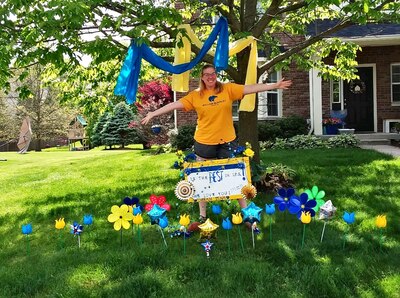
This was just one way that Perry, a third-year principal and veteran educator, is trying to support her “rock star” staff through the challenging pandemic year. She’s also held virtual game nights and morning coffee talks.
Even when IPS students have been learning full-time from home this fall, School 39 kept its doors open, providing space for staff to teach and connect with one another. Teachers and staff enjoy a so-called calm-down lounge and stress-relieving station.
“My teachers really are rock stars,” Perry said. “I’m so amazed at how they just seamlessly made the transition to remote learning. I know that they put in a lot of extra hours to make it look so easy.”
Perry, who is IPS’ Principal of the Year, recently shared with Chalkbeat how some safety precautions helped school run more smoothly and how her daily responsibilities have changed with remote learning.
This interview has been lightly edited for clarity and length.
Has there been anything in your career up to this point that prepared you for this moment?
While these are unprecedented times, what isn’t new for me or any educator is having to always be flexible, organized, and prepared for any contingency. The years I spent in the classroom prepared me to be able to consider all outcomes and quickly make adjustments that will ensure students are positively impacted.
How are you helping to guide teachers and staff at your school through this unprecedented time?
The most beneficial way for me to support my teachers and staff during the pandemic is to keep things as routine as possible and to plan down to the tiniest detail. Most people find comfort in routine, so I made sure that our academic day this year was structured the same as a traditional school year whether students were virtual or in-person.
When students were in-person learners, I made sure that protocols were put in place to not only keep everyone safe, but to also make them feel safe. It took a great deal of planning prior to the start of the year but was worth every minute when I saw it in action. We were all pleasantly surprised when students returned to the building and things ran smoother than it ever had.
Given our current situation, it is also more important than ever to find ways to support the social and emotional well-being of my teachers and staff in order for them to continue to take care of our students.
I would always bake for my staff once a month and put it in the lounge with a cute little notecard, like: “This place would crumble without you.” This year [when teachers are working from campus] I have upped my game. I make sure that the staff stress-reliever station stays well-stocked. I also sought out a community partner who could provide sweet treats to supplement my baked goods. I added a weekly trivia game that includes a fun giveaway like a gift card or self-care item. This has really been a hit and a great way to get to know fun facts about our school and staff.
What does a typical day look like for you now?
Our day looks very much the same as a traditional school year except it is now in a virtual setting. We still have staff and committee meetings. My day is still filled with class walk-throughs, teacher observations, and meetings with parents. The only real difference is that most things are done remotely.
The parent meetings are easier to do remotely. It gives parents more flexibility. Virtual district meetings are also easier for me. I can do the district meetings remotely sitting in my office, so if something comes up, I’m accessible.
The only thing that’s more difficult is student interaction. For me, it’s difficult seeing how it’s so much harder for my teachers. That’s where my frustration with virtual learning is. It does add another layer for teachers. And students aren’t getting that human interaction. That’s hard to see.
How are you addressing learning loss following months of remote learning?
I have a rock star staff that takes student learning personally. This is what grows students and pushes them toward grade-level proficiency: teachers being fully invested in their students and willing to put in the sweat and tears it takes when students have gaps in their learning.
We are aware that there was a huge loss of learning during the spring semester, but we also know that we have to keep moving forward so our students do not fall further behind.
Our students just took NWEA [tests]. When I looked at the data and compared it to last year, we’re getting them closer to grade-level proficiency, but we’re not growing them at the same rate as we had in years past. So that validates why you have to still give them access to grade-level curriculum.
Tell us about your own experience with school and how it affects your work today.
I am a proud Arsenal Tech graduate, so I am a product of IPS. I know firsthand the impact educators have on the outcome of their students, especially urban students. I will never forget when my second grade teacher, Miss Graves, told me that I was smart enough to go to college. This one comment changed the trajectory of my life.
I recount this story often to my staff because I want them to understand the impact they have on our students and the magnitude of the responsibility that lies with each of them. Where would I be if I had not had teachers who saw the potential in me?
What gives you hope at this moment?
The resiliency of my entire school community gives me great hope! Despite what students, parents, and staff have been through during this pandemic, they are always eager to learn, tackle any challenge set before them, and treat each other with respect and kindness throughout this ordeal.


